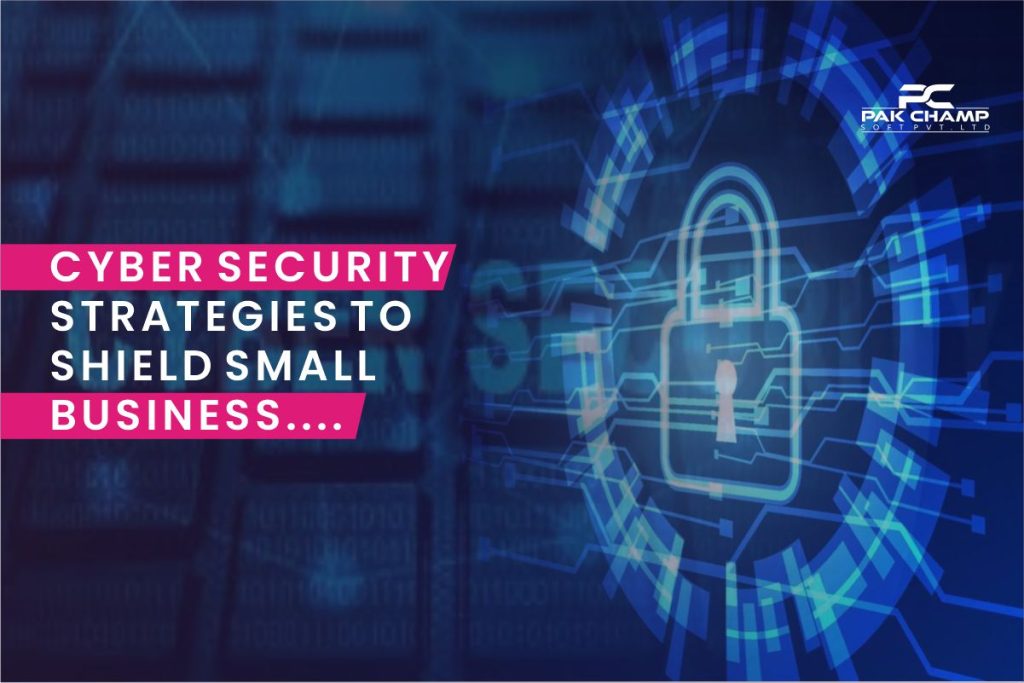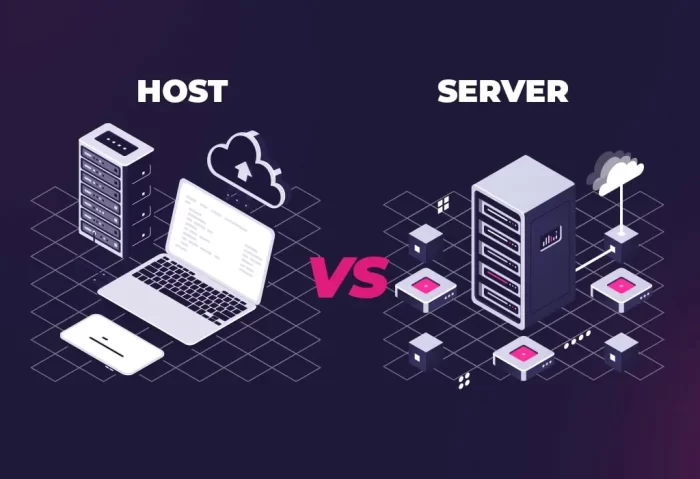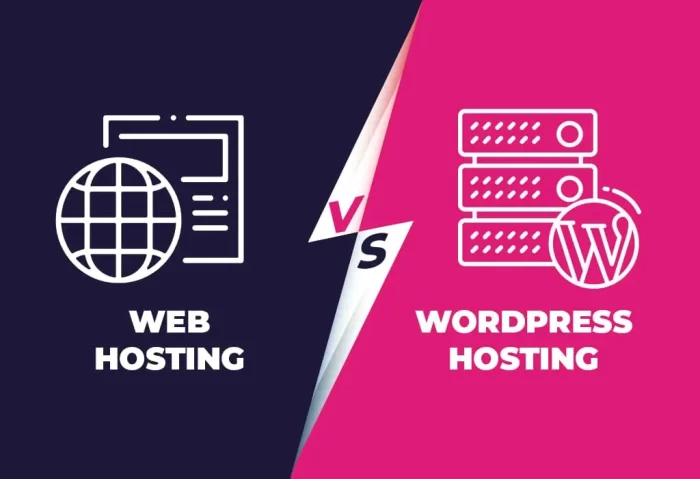Keeping your small business safe and secure from potential cyber threats is like putting up a shield to protect your digital world, just as you’d lock your doors to protect your house from criminals. Cyber security strategies are necessary to keep your business secure from hackers.
Today, we’ll delve into cyber security, a crucial aspect of protecting small businesses from malicious attacks or unauthorized access. Before we discuss strategies, let’s first establish a clear understanding of cyber security and why it’s so important.
Table of Contents
ToggleWhat is Cyber Security?
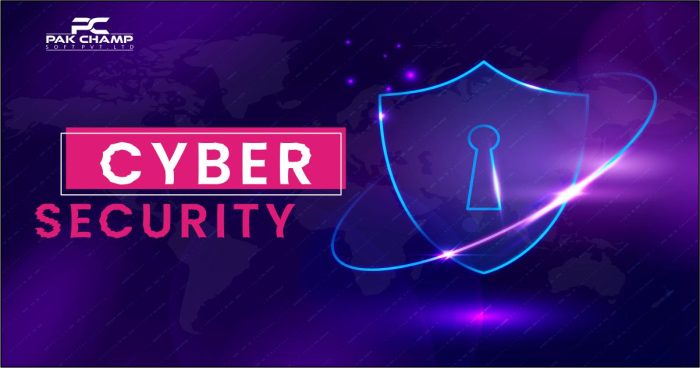
Cyber security protects computers, servers, networks, and digital data from malicious attacks or unauthorized access. It also prevents disruption, theft, and damage to digital data. Cyber security strategies ensure that organizations and businesses operate and interconnect security with the digital world. In short, cyber security is all about creating a secure digital environment for businesses.
Most Common Cyber Security Risks for Small Businesses
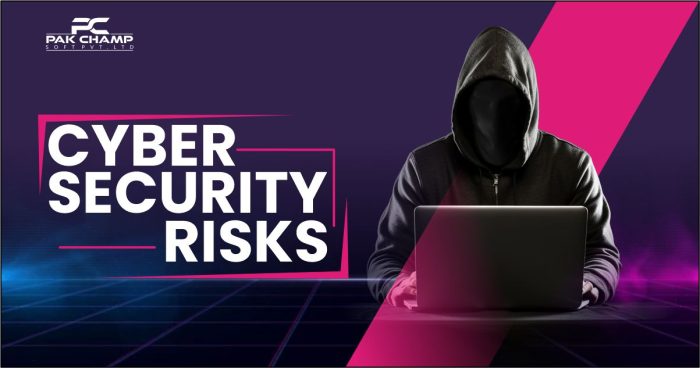
Despite business security protocols or resources, small businesses are still vulnerable to several cyber risks. It’s crucial to be aware of these risks and manage them professionally to maintain control and avoid data and financial loss, damage to the business’s reputation, and possible legal repercussions. In this section of the blog post, we’ll discuss the most common cyber risks for small businesses that they must be aware of. Let’s move.
Phishing Attacks:
Cybercriminals often use phishing emails or messages to trick employees or individuals into providing sensitive information, such as login credentials and financial details. These attacks can lead to unauthorized access to systems or financial theft.
Phishing attacks will result in data breaches, financial loss, and damage to organizational reputation within the market domain. You can effectively handle phishing attacks by implementing robust cyber security measures, like regular backups and security awareness.
Ransomware:
Malicious software that encrypts a business’s entire system and makes it inaccessible until a ransom is paid. This can lead to severe financial losses, operational downtime, and damage to a company.
Small companies frequently face this issue because they need robust backup and recovery systems. However, they can confidently manage this risk through proper management and cyber security strategies, such as regular backups and security awareness within an employee or organization.
Data Breaches:
Unauthorized access to business information or sensitive data and insufficient security measures, such as weak passwords or outdated software, can be the main reasons for data breaches. These can damage a business’s finances by hurting customer trust and leading to legal consequences. Effective data security management, including strong encryption, regular updates, and complete access control, is essential to protecting your business against breaches and minimizing their impact.
Malware:
Malware refers to malicious software—viruses, worms, trojans, and spyware that can infiltrate a computer or network through infected emails, downloads, or websites. It is specially designed to damage, disrupt, or gain unauthorized access to systems and data. Once malware is installed, it can corrupt files, steal sensitive information, or even control systems. Protecting your computer or network system requires frequently updated antivirus software to secure your browsing practices.
DDoS:
Cyber criminals use DDoS (Distributed Denial of Service) tactics to attack websites. They use an overwhelming flood of fake traffic from multiple sources to slow down and crash websites, making them inaccessible to real customers and disrupting regular business operations. This can lead to lost sales, damage business reputation, and potentially high recovery costs for a small business.
Having the best web hosting plan and sufficient security measures can help minimize the damage from DDoS attacks and keep the business running smoothly. Small companies should implement robust cyber security practices to control risks and ensure a smooth digital journey. You can effectively manage risk factors from cyber criminals by taking measured steps such as regularly updating software, training employees on security awareness, using strong and unique passwords, and having a comprehensive incident response plan.
Why Do Small Businesses Need Cyber Security?
Despite their size, small businesses are the target of cyber criminals due to their lack of security knowledge and limited budget. This makes a secure hosting infrastructure and robust cyber security practices a necessity, not a luxury, for these businesses.
Unmanaged or insecure businesses are at risk of cyberattacks, potential financial losses, operational disruptions, and damage to business reputation. That’s why investing in cybersecurity is not just a smart move but a crucial one for small businesses.
Cybersecurity strategies are not just about preventing cyberattacks; they’re about ensuring business continuity and data security. These strategies must be revised to avoid legal penalties, loss of customer trust, and disruption of business operations. In the next section, we’ll explore why small businesses need cyber security for a smooth digital journey.
How to Protect Your Business from Cyber Threats?

Data security is as essential for businesses as maintaining customers and organizational reputation. Computers carry sensitive information or data such as customer data, business information, and financial details that cannot be promised. Demonstrating robust data security strategies and maintaining data privacy will help businesses prevent data breaches and potential financial losses.
Secure Your Wi-Fi Network:
Securing your Wi-Fi network is essential for protecting sensitive data and business information from unauthorized users and cyber criminals. Change the default router login to a robust and unique username and password. Configure your network to implement WPA2 or WPA3 encryption for prior data security. Change the name of your Wi-Fi password, access point, or router to protect your Wi-Fi network from breaches and possible cyber-attacks. To avoid potential challenges, you can use a complex Pre-shared Key passphrase for additional security.
By updating your router regularly and reviewing connected devices, you can spot any unauthorized access and take control of your network’s security. Additionally, setting up a separate guest network for visitors and securing your router’s location can further enhance your network’s security. These measures put you in charge of safeguarding your Wi-Fi network against unauthorized access and security threats.
Limited Employ Access:
Limited access to sensitive data and information is critical to maintaining organizational security and operational efficiency. By implementing role-based access, you can minimize the impact of data breaches and reduce the possibility of data loss within the company. Set out a plan or define employees’ roles to hold them accountable for their actions. For security, you can use authentication methods within the organization, such as passwords, biometrics, and multi-factor authentication, to secure sensitive data from unauthorized access. You can protect your organization’s assets and sensitive information by carefully managing and restricting employee access.
Implement Password Management Strategy:
Password management policy is necessary to protect organizational data and sensitive information against unauthorized access and cyber threats. You must set strong passwords of at least 12-15 characters, ideally combining upper-case and lower-case letters, numbers, and symbols.
Review and change your password every 60 to 90 days to avoid potential cyber threats. Don’t use and set easily guessable information as passwords, such as names, birthdays, or common words. Maintaining a password policy can reduce the risk factors and enhance the overall security of small businesses.
Train Your Employees:
Employees can leave your business to potential cyber-attacks. To avoid it, conduct regular training programs that cover key areas such as cybersecurity practices, data protection, and recognizing phishing and other social engineering attacks. Create well-defined policies for managing customer information and other sensitive organizational data. Investing in employee training programs equips your team to prevent security breaches and enhance operational efficiency.
Establish clear policies for handling and protecting customer information and other sensitive organizational data. Investing in ongoing employee training can empower your workforce to act as a strong defense against security breaches and operational inefficiencies.
Install Antivirus Software Solution:
Choose antivirus software to safeguard your devices from viruses, spyware, ransomware, and phishing scams. Make sure the software you choose can clean and restore your devices to their pre-infected state. Updating your antivirus to stay safe from cyber threats and vulnerabilities is essential.
Keep Software Updated:
Choose reputable antivirus software that provides your website with real-time scanning, regular updates, and complete protection against malware, viruses, and other diverse threats. Make sure the software is configured to automatically scan files, emails, and downloads to detect and neutralize potential threats before they can damage your business reputation. Consistently updating your antivirus software helps to stay ahead of emerging threats and vulnerabilities. You can safeguard your systems and data against cyber threats by implementing and installing effective antivirus solutions.
Use Firewall:
A firewall safeguards hardware and software and helps businesses operate their physical servers. It also prevents viruses from damaging the network. A firewall protects a business’s traffic—both inbound and outbound. It can prevent hackers from targeting the network by blocking access to specific websites. After installing the firewall, keep it up to date regularly and apply the latest software updates.
Regularly Backup Your Files:
They regularly back up your files, protecting your data against loss, corruption, or ransomware attacks. Establish a backup schedule and use reliable methods such as cloud storage, external hard drives, or network-attached storage. Ensure backups are automated to minimize human error and regularly verify that backup processes function correctly. Maintain multiple backup versions and store them securely to protect from data loss due to natural disasters or physical theft.
Encrypt Critical Information:
If your business frequently handles data such as credit cards, bank accounts, and other sensitive details, it’s wise to use encryption to protect it from unauthorized access and breaches. Encryption alters information on the device into unreadable codes, keeping your data safe.
Encryption is designed for worst-case scenarios; even if your data is stolen, it remains useless to the hacker without the keys to decrypt and interpret the information. That’s why encryption is an important security measure to minimize the risk of exposure to cyber threats and unauthorized access.
Use Virtual Private Network (VPN):
A Virtual Private Network (VPN) enhances business security by adding an extra layer of protection. It allows a company or remote employees to securely access the company by funneling data and IP addresses through another secure connection. VPNs are beneficial while using public internet connections. A VPN gives users a secure connection, separating hackers from the data they hope to steal.
Conclusion
Protecting businesses from cyber threats requires a multifaceted approach, including technology combos and proactive strategies. Implementing robust security can shield your business from cyber-attacks. Reviewing and updating security measures will help maintain robust defenses against potential security threats.
Cyber security strategies are essential for protecting small businesses from potential cyber-attacks. By adopting a layered defense approach that includes strong password policies, regular software updates, and firewalls, small businesses can enhance their data security against potential breaches.
We hope this blog post is helpful for small businesses in protecting their server data or business information by implementing effective cyber security strategies to shield small businesses and sustain their operational integrity within their competitive market.

